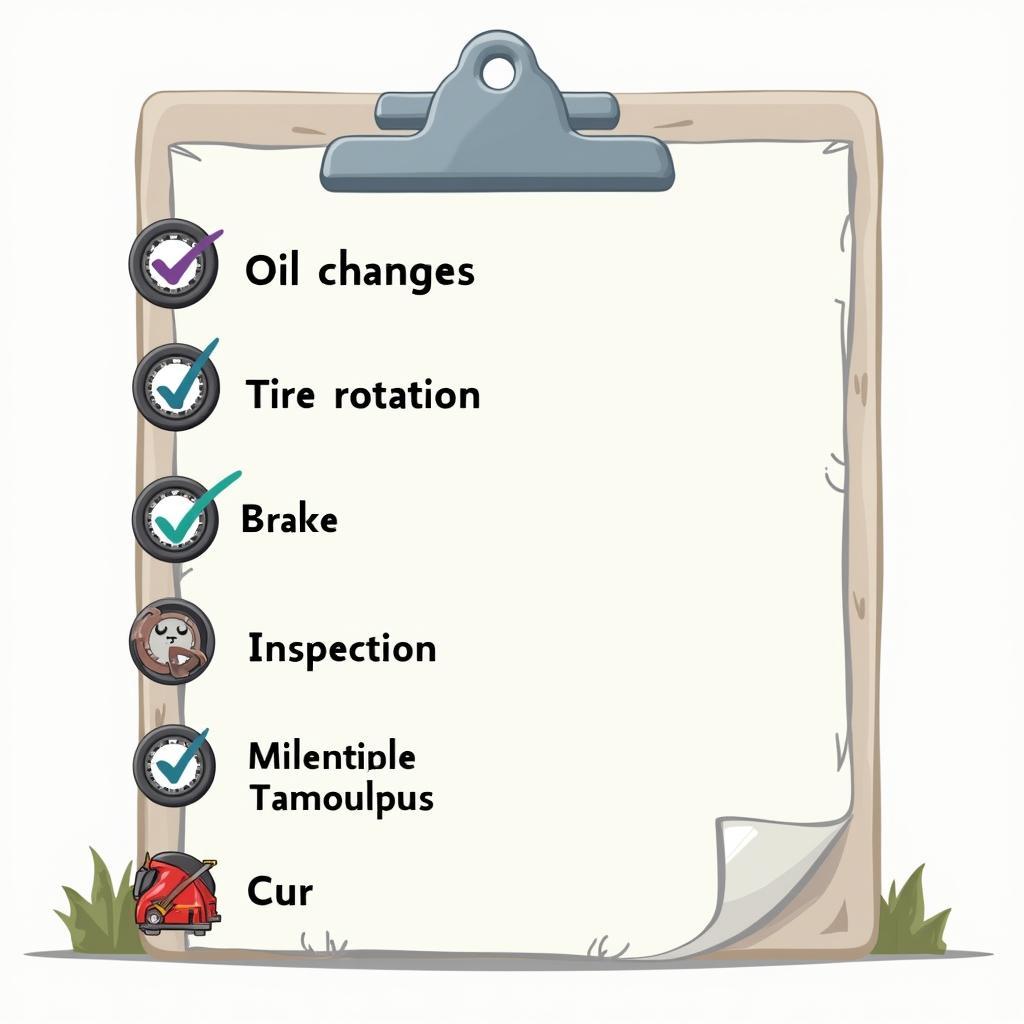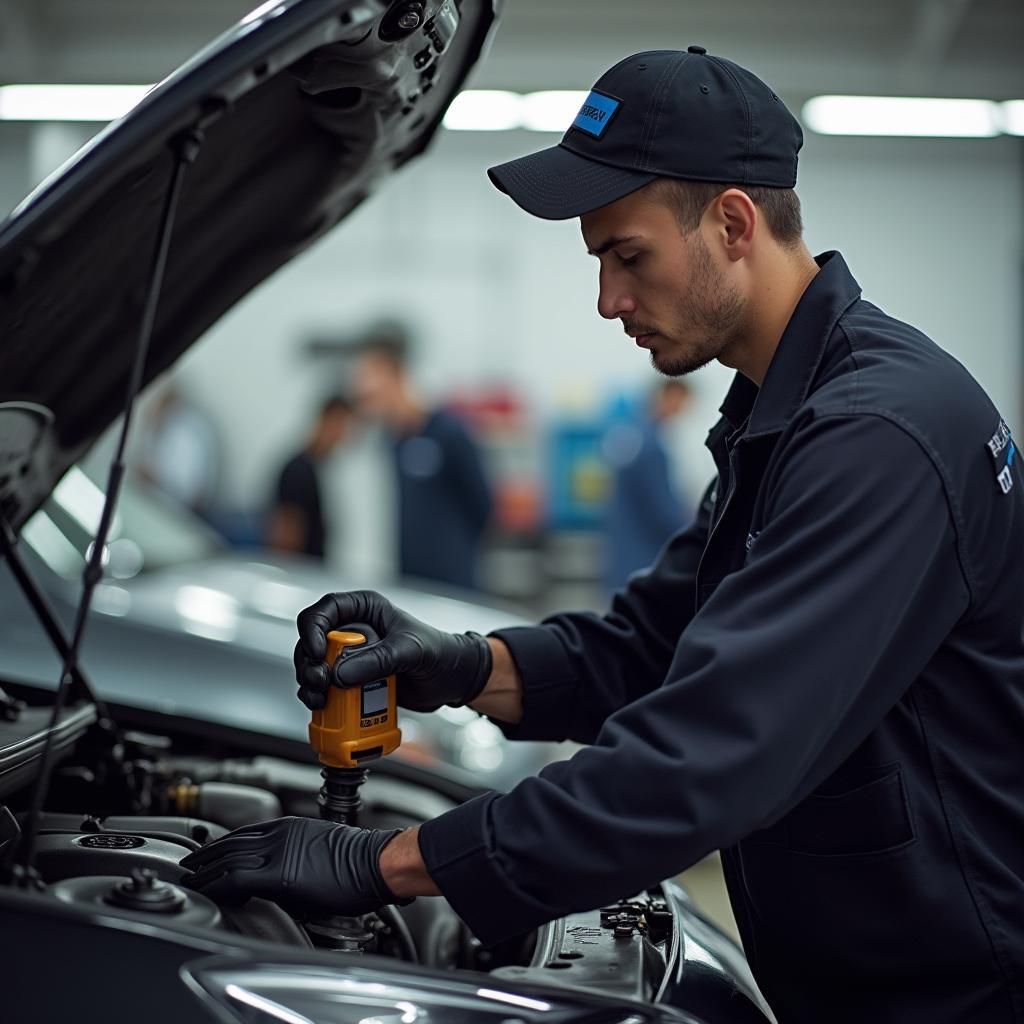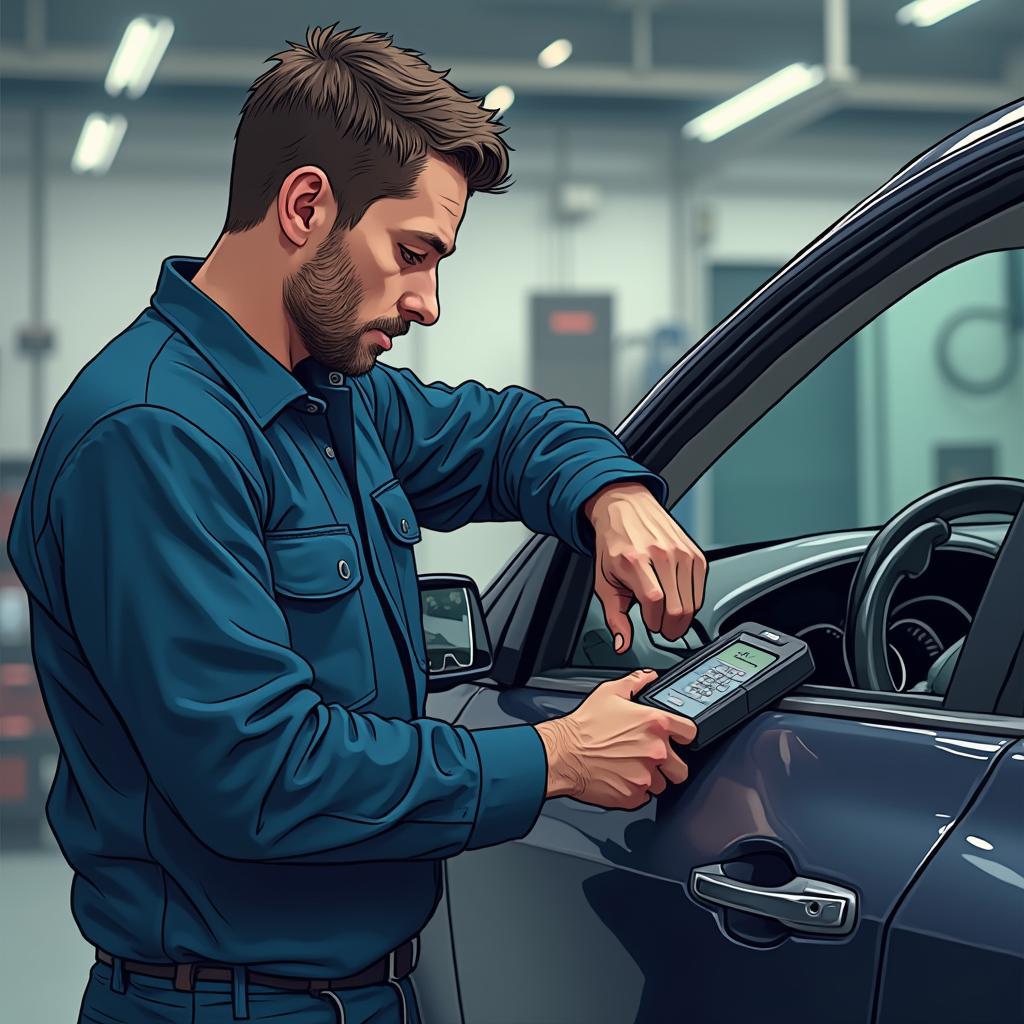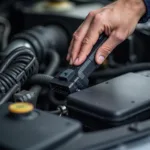The term “auto service” encompasses a wide range of maintenance, repair, and diagnostic procedures designed to keep your vehicle operating safely and efficiently. From routine oil changes to complex engine overhauls, auto service is essential for the longevity and performance of your car.
The Importance of Regular Auto Service
Imagine this: you’re driving down the highway, late for an important meeting, when suddenly, your engine sputters and dies. This stressful situation could have been avoided with regular auto service. Preventative maintenance is key to identifying potential issues before they escalate into costly repairs or dangerous breakdowns.
Here are some compelling reasons why consistent auto service is crucial:
- Safety: Regular inspections of brakes, tires, lights, and other critical components ensure your vehicle is safe to drive.
- Reliability: Consistent maintenance reduces the likelihood of unexpected breakdowns and keeps your car running smoothly.
- Longevity: Proper auto service can significantly extend the lifespan of your vehicle.
- Resale Value: A well-maintained car with a documented service history will have a higher resale value.
 Regular Auto Service Checklist
Regular Auto Service Checklist
Types of Auto Service
Auto service encompasses a broad spectrum of procedures, from basic upkeep to intricate repairs. Here’s a breakdown of common auto service categories:
1. Routine Maintenance
These are preventative services performed at regular intervals to keep your vehicle running optimally. Examples include:
- Oil and Filter Change: Lubricates engine components, preventing friction and wear.
- Tire Rotation & Pressure Check: Ensures even tire wear, improving handling and fuel efficiency.
- Brake Inspection & Service: Maintains optimal braking performance for safety.
- Fluid Top-offs: Replenishes essential fluids like coolant, brake fluid, and power steering fluid.
 Auto Service Technician Performing Oil Change
Auto Service Technician Performing Oil Change
2. Repairs
These services address specific issues that arise with your vehicle, ranging from minor fixes to major component replacements. Common repairs include:
- Engine Repair: Addressing problems with engine performance, such as misfires or loss of power.
- Transmission Repair: Resolving issues with gear shifting, slipping, or complete transmission failure.
- Brake Repair: Fixing worn brake pads, rotors, calipers, or other brake system components.
- Electrical System Repair: Diagnosing and fixing issues with the battery, alternator, starter, or wiring.
3. Diagnostics
When your car isn’t running right, diagnostic services use advanced computer technology to pinpoint the root cause of the problem. This often involves:
- Check Engine Light Diagnosis: Identifying the reason behind a illuminated check engine light.
- Computerized System Scans: Analyzing the data from your car’s onboard computer to detect malfunctions.
 Mechanic Using Diagnostic Equipment on Car
Mechanic Using Diagnostic Equipment on Car
Choosing the Right Auto Service Provider
Selecting a trustworthy and skilled auto service provider is essential for the well-being of your vehicle. Consider these factors when making your decision:
- Reputation: Look for shops with positive customer reviews and a strong reputation in your area.
- Experience: Choose a provider with extensive experience working on your specific car make and model.
- Certifications: ASE-certified technicians have met industry standards for knowledge and expertise.
- Transparency: Select a shop that provides clear explanations of services and costs upfront.
Conclusion
Auto service is not merely an option; it’s a necessity for responsible car ownership. By prioritizing regular maintenance and addressing issues promptly, you can ensure your vehicle remains safe, reliable, and operating at peak performance. Remember, investing in auto service is investing in the longevity and value of your car.
FAQs
1. How often should I get an oil change?
Answer: Most manufacturers recommend an oil change every 3,000 miles or 3 months, whichever comes first. However, consult your owner’s manual for specific guidelines for your vehicle.
2. What does the check engine light mean?
Answer: The check engine light can indicate a range of issues, from a loose gas cap to a more serious engine problem. It’s essential to get your vehicle diagnosed by a professional technician to determine the exact cause.
3. How can I tell if my brakes need to be replaced?
Answer: Signs of worn brakes include squeaking or grinding noises, vibrations in the brake pedal, or a longer stopping distance.
4. What are some tips for finding a reliable mechanic?
Answer: Ask for recommendations from friends, family, or online reviews. Look for shops with certified technicians and transparent pricing policies.
5. Is it necessary to use the dealership for maintenance during the warranty period?
Answer: No, you are not required to use the dealership for routine maintenance to maintain your warranty. However, it’s crucial to keep detailed records of all services performed.
Common Auto Service Scenarios:
Scenario 1: Your car is making a strange noise.
- Possible Issues: This could indicate a problem with your engine, transmission, exhaust system, or other components.
- Recommendation: Schedule an appointment with a trusted mechanic to diagnose the noise and determine the necessary repairs.
Scenario 2: Your check engine light is on.
- Possible Issues: This could be due to a variety of reasons, ranging from a loose gas cap to a more serious engine problem.
- Recommendation: Get your vehicle diagnosed at an auto repair shop to identify and address the underlying issue.
Scenario 3: Your brakes are squeaking.
- Possible Issues: Worn brake pads are the most likely cause of squeaking brakes.
- Recommendation: Have your brakes inspected by a professional technician to determine if they need to be replaced.
Need More Help?
Have more questions or need assistance with your vehicle? Contact us via WhatsApp at +1(641)206-8880 or email [email protected]. Our dedicated support team is available 24/7 to assist you.


